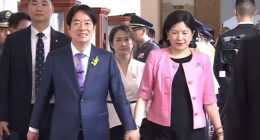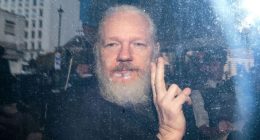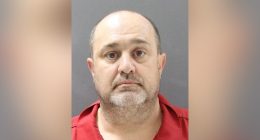
With tens of thousands of elites descending upon the Red Sea resort town of Sharm El Sheikh for the UN COP27 climate conference, some 400 private jets have been witnessed landing in the Egyptian city.
The COP27 climate change summit, which was too hypocritical for even Greta Thunberg to attend, has been beset with accusations of elitism and double standards.
This was further confirmed on Friday, when the Agence France-Presse (AFP) news agency reported that over 400 private jets have landed in the Egyptian coastal city over the past few days while the conference is being held.
Speaking on condition of anonymity to the news agency, a source close to local aviation authorities said: “More than 400 private jets landed in the past few days in Egypt,”
“There was a meeting ahead of COP27, and officials were expecting those jets and made some arrangements in Sharm el-Sheikh airport to welcome those planes.”
The rank hypocrisy from globalist elites is not out of character, with a similar number of private jets flying to last year’s COP26 conference in Glasgow, with even then-Prince Charles and Boris Johnson opting to fly private despite living in the same country, with rail networks available.
China Joe reiterated that John Kerry is “leading” the country’s upcoming global warming effort despite his private jet usage. https://t.co/IGhD0f0PmE
— Breitbart News (@BreitbartNews) September 10, 2021
Around 33,000 people registered to attend the meeting in Egypt — which could have been done largely on Zoom, if reducing carbon emissions was that important.
Meanwhile, the UN summit has also come under criticism for offering attendees gourmet meals consisting of meat, fish, and dairy products, as many in attendance — including the UN, itself — have advocated for the regular public to start eating more ‘sustainable’ food sources, such as insect-derived proteins.
German reporters have also claimed that the compound hosting the summit has been blasting the air conditioning so cold that people were bundling up with scarves and other winter accoutrements.
All this has seen the conference lose credibility with the public. Leading figures at the conference, such as Britain’s Prime Minister Rishi Sunak and former U.S. Vice President Al Gore called for increasingly radical responses to the alleged climate crisis, including providing climate reparations.
Yet, according to Climate Action Against Disinformation, which tracks supposed disinformation on social media, the main themes in the public’s perception of the meeting were “hypocrisy and elitism”.
Energy Rationing for Plebs Only: COP27 Bigwigs Blast Air Conditioning in 80 Degree Egypthttps://t.co/SkTLsJCh8q
— Breitbart London (@BreitbartLondon) November 10, 2022
Follow Kurt Zindulka on Twitter here @KurtZindulka
Read More: World News | Entertainment News | Celeb News
Breitbart






